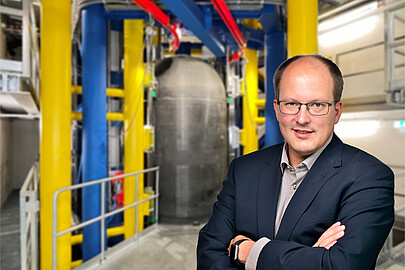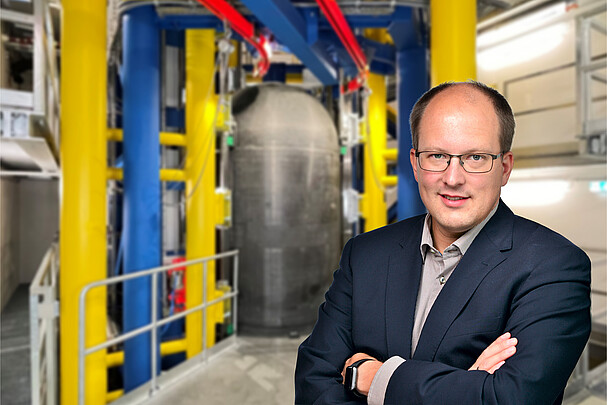

30823 Garbsen


30823 Garbsen
Who are you and what is the topic of your research group?
My name is Christoph Lotz and I am a mechanical engineer. Together with my research group I am working on quantum optical and engineering research topics under different gravitational conditions. These special environmental conditions are generated at Hannover Institute of Technology (HITec) in the Einstein-Elevator, which is operated by the research group. In QuantumFrontiers, I work on planning, realizing, and testing pioneering technologies for future space missions on microgravity platforms. In parallel, I am researching (production) technologies for space application, which is essential for a sustainable evolution of humanity towards a multi-planetary species.
Which research question are you working on?
How can we investigate fundamental questions on Earth that would usually be detectable in space? How can we study effects masked by Earth gravity? Can we study the most sensitive experiments in a highly dynamic facility under the highest quality? My research allows to perform quantum experiments in microgravity, according to the quality requirements of each experiment. In addition, we are already at the limit of what can be measured with currently available measurement technology. This must be overcome, for example, by hybridizing electrostatic and atomic interferometric sensors.
I also work in the field of additive manufacturing. How can we create components in space or on different celestial bodies? What manufacturing techniques are suitable for processing regolith (Moon dust)? The development of (production) technology for use in space is necessary for currently planned missions and, in doing so, also makes it possible to solve earthly challenges with disruptive innovations.
What makes this topic special/exciting for you?
Research on quantum physics experiments in both the fundamentals and the applications of metrology, for example for future space missions, is a collaborative effort between different disciplines. The joint search for solutions for the development of innovative technologies, which often in turn also enable development leaps in other research questions, is highly exciting and requires creativity and continuity.
How does your topic help to push the boundaries of what can be measured?
The investigation of quantum physical processes in microgravity requires environmental conditions that are as undisturbed as possible. Challenges here are lowest residual accelerations, low rotation rates, no disturbing electric and magnetic fields, controlled ambient temperatures and much more. Increasing precision in experiments also demands continuous development of the facility. The working group also focuses on the exchange between experimenters and drop tower operators, as this is an essential key to the planning, successful execution and evaluation of complex and high-tech experiments.
What is special about participating in the QuantumFrontiers cluster of excellence?
QuantumFrontiers is a highly specialized and open community that has set itself great tasks together. The topics are multifaceted, and it brings joy to be able to contribute to the achievement of partial goals. I also appreciate the joint work with different disciplines as well as the international contacts to interesting experiments and top scientists. QuantumFrontiers provides the necessary framework for this.






